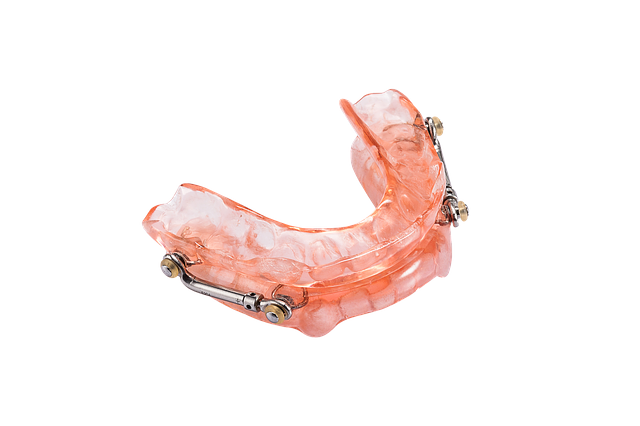A very serious condition, sleep apnea, is often left untreated. When a person has sleep apnea, their airway closes up while they are sleeping and they cannot breathe well. See the advice in the article below for basic information on dealing with this frightening and possibly life threatening condition.
If you want to ease your sleep apnea, it’s crucial that you speak with your physician regarding CPAP machines and which is best for you. Take into consideration both the noise and size of the CPAP machine. Don’t worry too much about the sound as there are many types of very quiet machines that will not disrupt sleep. A doctor will be able to give advice on machines that they know their patients have had very good luck with.
Your doctor or a sleep specialist can help you find the CPAP machine that is best suited for your needs and comfort. You should take the size and potential to make noise into consideration. The newer CPAP machines are much smaller and quieter than earlier ones were. Your doctor can recommend which machines his patients have had the most success with.
Shedding some excess pounds is a good idea if you’re overweight. There are many studies linking overweight people to sleep apnea. Therefore, if you are obese, a loss of just 25 pounds can cause a major improvement in your apnea symptoms.
Sleeping Pills
Taking up a wind instrument can help to alleviate your sleep apnea symptoms. Researchers from Germany found that practicing with the didgeridoo on a regular basis strengthens throat muscles. It helps to strengthen the muscles in the throat, which collapse during sleep apnea episodes. This is why if you play often you will have less sleep apnea issues.
Avoid sleeping pills when you find out you realize you are diagnosed with sleep apnea. Sleeping pills can make it so your airways don’t function correctly. Sleeping pills can actually really harm you and prevent any air from coming through your body, so stay away from them as much as possible.
It can be a very serious issue when you have sleep apnea. If you feel some of the symptoms, then you need to consult a physician as quickly as you can. If the doctor determines you are suffering with sleep apnea, you should consult with someone who specializes in this disorder in order to effectively treat the condition.
If you need to be hospitalized for some reason, be sure that you take your CPAP machine with you to the hospital. While a hospital will have CPAP machines, you may be much more comfortable with a machine that already fits you well. Your own CPAP machine will be set to the pressure recommended by your sleep specialist, so you won’t have to get used to a new machine. Staying in a hospital is tough enough, and you might as well bring your own machine along to help ease the visit as much as you can.
Consider any alternative you can find to using sleeping pills. The muscles in your throat relax too much when you use a sedative like sleeping pills, (or alcohol) and your airway is much more likely to collapse during sleep. Pills also can affect sleep apnea sufferers in several different ways. Think about asking your physician about ways you can get to sleep that will not affect your apnea.
If nothing you are trying is improving your sleep apnea symptoms, you should talk to your doctor about some of the more drastic treatment options that are available. Some people don’t have any luck with conventional treatments, and usually opt for surgeries like a tonsillectomy, adenoid removal or airway enlargement as their last resort.
Lie on your side when you sleep. Sleeping on your back is more likely to cause snoring and apnea. The tissue in your throat and mouth can wind up obstructing your air passage when you sleep on your back. Sleeping on one’s side is a better option. If you tend to lay on your back while sleeping, prop yourself on your side using pillows.
Risk Factors
The most common way for a physician to diagnose you with sleep apnea is to conduct a physical examination and investigate the medical histories of you and your relatives. Your doctor may recommend a sleep study as well. When your doctor has this information, he passes it on to a specialist who can help you even more.
Eliminate all the risk factors you can. Some sleep apnea risk factors cannot be changed, like genetic or hereditary reasons. So make sure you try to avoid doing things like this so you don’t get sleep apnea.
If you have a CPAP machine, carry your medical ID. Should something happen to you that requires medical attention, this will alert others of your condition. The information on the card should mention your sleep anea and include the full details of the treatment you regularly use.
You should ask your doctor what you can do about sleep apnea; however, there are areas that you can investigate for yourself. Try losing weight and eating healthier to get rid of your sleep apnea. Curtail alcohol, heavy foods and caffeine before bedtime also.
Remember to bring the CPAP machine with you if you should happen to require a stay at the hospital. Your CPAP is set to your specifications so it will be easier for medical staff to help you out because you already have your own device. While they may have a machine for you to use, your machine is already preset for your specific settings and has the mask you are already accustomed to wearing. This will simplify your CPAP therapy during your stay at the hospital.
Sleep Apnea
If sleep apnea afflicts you, don’t drink too much. When drinking alcohol it causes the muscles in your throat to relax, which results in snoring and blocked airways. If you’re dealing with sleep apnea, it’s a good idea to avoid drinking as much as possible, especially in the hours close to your bed time. Limiting your alcohol consumption will increase your chances of getting a lot of good rest.
Do not lie on your back when you sleep if you have sleep apnea. Many people with sleep apnea find their airways block more easily when they sleep lying on their backs. You can prop yourself up on one side with cushions or pillows to discourage face-up sleeping.
Learning a wind instrument is recommended as a treatment for sleep apnea. Wind exercises will help exercise and strengthen your throat muscles, which will help you breath in the middle of the night. Working these muscles can reduce sleep apnea symptoms, by strengthening them and enabling you greater control over them.
Stop smoking cigarettes if you have sleep apnea. It can cause your upper airways to start swelling, which can make your sleep apnea worse. You could use various methods of nicotine replacement, electronic cigarettes or a stop smoking program to quit smoking.` After 30 days of dedication, you should almost be cured from being addicted to smoking. After that, it gets easier, because the nicotine addiction is gone.
Try not to feel embarrassed about getting treatment or using a CPAP machine. Inform people about it, and let them know that it is no big deal. If you have to use a CPAP machine your family and friends should not make fun of it.
Exercises done with the tongue reduce sleep apnea symptoms. Place your tongue on your mouth’s roof and keep it there for at least three minutes. This will strengthen your throat and tongue muscles and reduce the chances of them relaxing while you sleep and blocking your airways.
There are some simple, straightforward techniques that can improve sleep apnea sufferers’ odds of getting a good night’s sleep. Make sure you establish a regular bedtime, and adhere to it every night. Lights in your bedroom can keep you awake, so turn off all electronic devices and any lamps or overhead lights, too. If you sleep in improper conditions, you might suffer from chronic lack of sleep.
If you have sleep apnea, you should not drink excessively. Drinking can overly relax throat muscles, causing blocked airways and snoring. If you are going to drink, have only one a few hours before bed. Doing so will minimize the chance that alcohol will interfere with your sleep.
Do not sleep on the back if you suffer from sleep apnea. Sleeping on your back increases the chances that your airways will collapse as the night goes on. Gravity will not pull on your throat muscles and close them up as easily if you turn on your side instead.
You should take lessons on a wind instrument. You can pick up a new skill, but more than that you are able to exercise and learn to control the very muscles that have to do with breathing. Strong throat muscles are less likely to contribute to the ill-effects of sleep apnea.
Regularly consult your doctor when you find out you have sleep apnea. You can learn a lot about your condition and treatment by keeping in communication with your doctor. They will be able to hear how you are progressing, and they can help you adjust your strategies for getting rid of sleep apnea.
Let the airline company know far in advance when you plan on traveling and you have to take your CPAP machine with you. They will usually accommodate you by giving you a seat where you can easily get to your machine. Remind them that you will need to plug your machine in, or you can use a machine that uses batteries as a backup measure.
Sleep apnea causes chronic exhaustion, which is a self-reinforcing negative spiral. Make sure you stick to a regular bedtime and stay in bed long enough. Set yourself some guidelines as far as sleeping. This can keep your sleep apnea from getting worse.
Anyone afflicted with sleep apnea might need solutions to get good rest. Always sleep at the same time every night. Lights in your bedroom can keep you awake, so turn off all electronic devices and any lamps or overhead lights, too. Insomnia can occur if the conditions are poor.
If you think you suffer from sleep apnea, get an official diagnosis from your family physician. Sleep apnea is a serious condition, so just guessing at a diagnosis could be dangerous. Let your physician know about everything that has transpired, find out what is causing it, and immediately take the necessary action.
Sleep apnea can make you chronically tired, which is bad for you throughout the day. Make sure you stick to a regular bedtime and stay in bed long enough. Establish a routine bedtime and wake time so your body becomes accustomed to a specific sleep schedule. In this way you can prevent sleep apnea from leading to derivative sleep disorders like genuine insomnia.
Sleep apnea happens when you do not get enough oxygen when you are sleeping. To reduce this problem, people with sleep apnea should not sleep at higher elevations. The higher you are, the less oxygen there is which is bad. If sleeping at elevations can be avoided, do so.
If you feel you may be suffering with sleep apnea, it is best to pay a visit to the family doctor. There is no room for guessing when it comes to getting a restful night’s sleep. Speak with your doctor and let them know all the things going on in your life that may be the cause of this condition.
Use a mouth guard that fits properly to help with sleep apnea. These devices are worn in the mouth while sleeping and help to keep the airways open for a better night’s sleep. The setting of your jaw can contribute to the symptoms of your sleep apnea and actually make the condition worse.
Now that you have a better understanding of sleep apnea, you should feel more optimistic about your sleeping future. If you feel you need additional information, it is advisable you seek out a medical professional who can give you further advice on how to properly treat this condition.
Think about getting a guard for your mouth. If your jaw is small, you have an overbite, or any other jaw abnormality, consider having your dentist fit you with a custom mouth guard. These mouth guards help to re-position the tongue, teeth or jaw better so that you can breathe easier at night.
When you are starting out, you might feel a bit overwhelmed when dealing with the subject of antibacterial best pillow
wholesale mattress protector twin xl, encasement mattress protector. There is a lot to take in, but it will be a great benefit if you spend time learning. By using what you have learned here, you will be able to have a positive experience.









